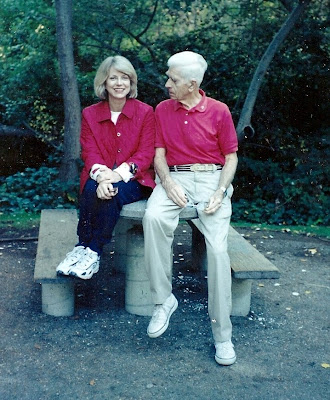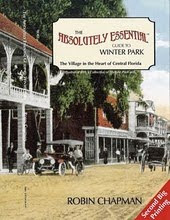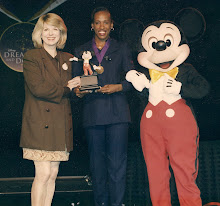
Robert Quarry, the tall, charismatic actor with a velvet voice known for his iconic horror roles as Count Yorga and the Deathmaster, died Friday in Woodland Hills. He was 83.
I knew him, thanks to the generosity of my friend, Fred Olen Ray, who, apart from directing some of Quarry’s memorable films, made Uncle Bob part of his family. Quarry was always a wonderful, delightful, funny presence, whether on set or sitting across the table over drinks and dinner.
An intellectual with an IQ of 168 and a Lifemaster at Bridge, Quarry also found time to author a well-received cookbook. A gourmet chef who studied at the Cordon Blue in Manhattan, his Wonderfully Simple Recipes for Simply Wonderful Food sold over 60,000 copies after its debut in 1988.
He was born in Santa Rosa, California, on November 3, 1925. Brainy enough to have finished high school by the age of fourteen, he was already speeding into the world of theater. By the early forties he was getting steady radio work on series like Dr. Christian. And being a Santa Rosa resident, he made his un-credited screen debut in the classic 1943 thriller Shadow of a Doubt when director Alfred Hitchcock brought his production unit to town for location shooting. A stint in the Army Corps of Engineers followed, with Quarry maintaining his ties to show biz by producing The Hasty Heart with a G.I. cast.
After the war and well into the 1950s, traveling between New York and Hollywood, Quarry maintained his radio and Broadway schedule in between appearances on such TV shows as The Lone Ranger, Philco Television Playhouse, Mike Hammer, and the Hallmark Hall of Fame. He broke into feature films in 1955, appearing opposite Clark Gable and Susan Hayward in Soldier of Fortune. He then played opposite Robert Stack and Robert Ryan in Sam Fuller’s House of Bamboo and had a small but showy role in A Kiss Before Dying, with Robert Wagner. After appearing in two films opposite Paul Newman, W.U.S.A and Winning, Quarry found himself on the threshold of stardom.
Low budget, tongue-in-cheek horror films had caught a wave in the hip seventies. Robert Quarry was hot. His character: Count Yorga, Vampire. His unique take on the implausible—he played the Count with all the menace of Christopher Lee, the charm of Bela Lugosi and with a certain wink and a nod to the audience—made Count Yorga a big hit. It spawned a sequel and put Quarry on his way.

But, after the string of hits ended with Madhouse, Quarry suffered a car accident that damaged his health and career. By the early eighties, work was hard to find until Quarry met a young filmmaker named Fred Olen Ray. Ray had grown up on a healthy diet of Quarry’s kind of horror and was determined to bring him back to star status.
And that he did. After supporting roles in two of Ray’s features (Cyclone and Commando Squad) Quarry returned to star status in Ray’s Sci Fi serial send-up Phantom Empire, opposite Jeffrey Combs and Sybil Danning. The surprise video hit featured Quarry returning in his adventurer costume from Dr. Phibes Rises Again (in which he starred opposite Vincent Price) and parodying himself to the limit in what has become a cult classic. He made the productions enjoyable, preparing gourmet meals for cast and crew. Much work followed, as a younger generation of filmmakers sought out Quarry’s services to lend a dash of class, elegance and humor to their films.

I have some personal memories of him. I consider myself very lucky to have been invited into the circle of director Fred Olen Ray 's extended family of friends. I always called him Mr. Quarry—out of respect. And here's another reason why:
Some years ago, the summer of 1990, I think, I was preparing to come out to California from Florida for a meeting with Fred. Accompanying me was a mutual friend, we’ll call Russ, also from Florida, and a partner on the project we were doing. Russ had been out the year before and had spent time on the Alienator set, hanging around with the drive-in movie actor and actress team Ross and Claire Hagen and also with Robert Quarry. We were all star-struck at Russ’ good fortune. But Russ had a warning. "Don't," he said. "Don't ever call him Uncle Bob!"
I looked at my friend, a little concerned. I could still see fear in his face from some horrific incident that must have happened on that Alienator set. I nodded. "Go on, what happened?"
Russ shook his head. "I called him Uncle Bob. Bad mistake."
Apparently, actress Dawn Wildsmith (Ray's wife at the time) had been the first to call him Uncle. It spread to the immediate family. Mr. Quarry sometimes lived with the Rays and would babysit Chris, one of Ray's sons.
Russ had visited the Rays at home that summer, parking his camper trailer outside the Ray residence (even running a power line off the Ray house—as well as using the showers, food, booze, and whatever was on the shelves). Apparently Russ had heard Uncle Bob this and Uncle Bob that and had assumed it was the preferred way of addressing Quarry.
So while visiting the set of Alienator, Russ noticed Quarry was working that day. It was a meal break. Everyone was exhausted. No one was really in the mood for chats with fans. Nonplussed, Russ grabbed a paper plate and, in true fan-boy style, approached Mr. Quarry, who was standing in the lunch line.
"Hey, Uncle Bob. Sign this for me, will ya?"
Quarry whirled around, took a long, hard look at him and said, "I am not your G-- damned Uncle!"
What my friend couldn't know was this wasn't cruelty: this was Mr. Quarry getting a laugh. And laughs he got. He had that hair trigger temper that was mostly show combined with a brilliant and very quick wit.
My friend, nevertheless, a sometimes overly enthusiastic autograph hound, slunk away.
It seems Quarry was very particular about who called him Uncle Bob. Only family was allowed that privilege. And Fred Olen Ray and his family were in that very select group. As the years went by, folks wore him down with the Uncle Bob thing and he eventually stopped objecting. But I stuck with calling him Mr. Quarry whenever we met. It felt right to me.
My fondest memory was a Christmas night at Fred’s. We’d all gathered for dinner. Mr. Quarry had struggled with heart problems in the last years, and was limited to his two beloved cigarettes per night. So, we were all out on the back porch, in the cold and wet, enduring misty rain, drinking our drinks and smoking our cigars as Uncle Bob puffed away for two hours, telling tall tales and true about Hollywood and his pals Howard Hughes, the Barrymores, Errol Flynn, Susan Hayward and especially catty stories about Vincent Price, his rival as a horror icon.
I came away from that evening with a bad case of bronchitis; but, every single cough was worth it. Here’s the wonderful thing and the key to this delightful man: whatever you called him, he always treated you as if he was your Uncle Bob. And, beyond the delightful films he left for us to enjoy, that is a treasure for the ages.
Steve Latshaw
Hollywood, California
 Robert Quarry in his most popular dinner clothes.
Robert Quarry in his most popular dinner clothes.
Read more!


















